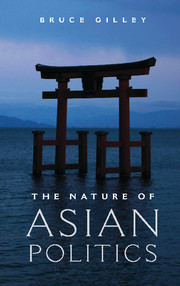6 - Public Policy
Published online by Cambridge University Press: 05 September 2014
Summary
Big, Fast Results
In 2010, Malaysia launched a new public policy initiative that it called “Big, Fast Results.” The idea was to turn public policy into a more entrepreneurial and strategic process that both served large constituencies (not small ones) and created immediate, visible results. As a government brochure put it: “It aims to rid the public of a ubiquitous concern – that the government simply is unable to execute and deliver on programs that otherwise sound great in theory. It’s about ensuring that the initiatives put in place will do what they aim to do, and that they get done.” The program, formally known as the Economic Transformation Program, was managed by a new agency of government – the Performance Management and Delivery Unit (PEMANDU), under the prime minister – that initiated the strategic (“30,000-foot” level) public policy decisions and then handed them over to the implementing and management (“3-foot” level) departments. In its first two years of operations, the program committed $63 billion to various projects in infrastructure, finance, crime prevention, health, and education.
In Chapter 5, we looked at the processes of governance and policy making – the question of how government works. In this chapter, we turn to outcomes – the question of what government achieves. A key theme of the Big, Fast Results program was an emphasis on creating opportunities, services, and infrastructure for everyone rather than entitlements and spoils for particular claimant groups. And unlike most megalomaniacal Third World transformation projects, this one was carefully managed with a battery of scorecards, agreed-upon-procedures, and continual improvement panels that would make any management enthusiast squirm with joy. We have already seen in Chapter 4 how a “rights of the majority” discourse shapes democracy in Asia. It is no surprise that this translates into public policies that aim to have a broad impact. The nature of public policy in Asia is to favor inclusive, growth-oriented aims rather than exclusive, distributional aims. To borrow the terms used by philosopher John Rawls, it is the expansion of “primary social goods” – things that everyone could use in greater quantities, such as income, wealth, opportunity, social respect, and freedoms – rather than their distribution that motivates public policies. As Cheung puts it: “Developmentalism is still the foundation of East Asian public policy discourse.”
- Type
- Chapter
- Information
- The Nature of Asian Politics , pp. 186 - 212Publisher: Cambridge University PressPrint publication year: 2014



